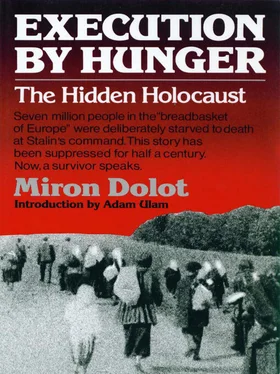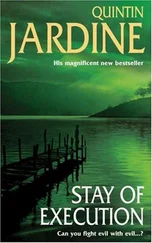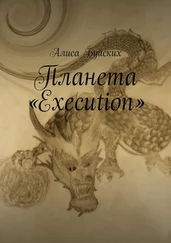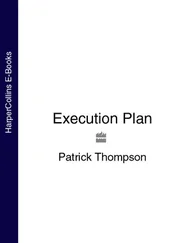Anxiety turned to panic when the first disquieting news came that the kolhosp storehouses were empty, that the grain had been taken away from the village, and that none had been left for the local populace.
The long winter had just begun. It would be six months from December before we could gather vegetables in our gardens again; it would be eight months before we could get bread from the new crop of grain. Already, some of us were on the verge of collapse from starvation. We clung, nevertheless, to the hope that the government would help us, but as time went by, that hope faded.
Meanwhile, the cold became more intense and the snow fell slowly, continuously, threatening to block the road from the village to the county seat and other neighboring towns. Yet the members of the Bread Procurement Commission continued in their task, relentlessly tramping from house to house, confiscating everything edible they could find in their attempt to meet the state quotas. Even the smallest amounts of grain and meat were forcibly seized from the villagers.
We had to do something. No one wanted to lie down passively and starve to death. One of the first steps undertaken by the villagers was a mass exodus to the neighboring cities where they hoped to find jobs and food. All—young and old—tried to reach the cities as they had tried before during the last spring famine. Many did not make it, and their frozen bodies became roadmarkers for others on the snowed-in route to the county towns. Those who were strong enough to reach the cities failed to find a paradise of plenty, even though the food rationing there slowed down the onslaught of famine somewhat. The food rations were so small that the city dwellers could not help the starving farmers.
Jobs were as scarce as food. Some of the younger huskier men found jobs at the sugar plants, state road construction projects, or woodcutting. Others were hired to carry water from the community wells. But the elderly men and women and the children who desperately sought out the cities with the hope of earning their daily bread were less fortunate.
As the exodus of villagers to the cities increased, the government confounded the farmers with an ordinance prohibiting a villager from appearing in any city without a proper certificate. Any emigration out of Ukraine was also strictly prohibited.
It was precisely at this time, the end of December 1932, that the government introduced a single passport system for the entire country in order to prevent the starving farmers from leaving their villages for the cities. This meant that all Soviet citizens over sixteen years of age, permanently residing in the cities, had to be registered with the militia in order to get their Soviet passports.
No person lacking a passport was permitted to live in a given city or be employed and receive food rations. All but the farmers had to have passports. This meant that a farmer could not stay in a city longer than twenty-four hours without being registered with the militia. Thus, not having passports, the farmers could not be employed in a city, and most importantly, they could not have food rations.
The passportization was supposedly directed against the kurkuls, as Soviet propaganda proclaimed: “Passportization is a mortal blow against the kurkuls!” This murderous slogan revived the old question: “ Who is a kurkul? ” All villagers had been collectivized by this time. There was not a single independent farmer left in our village by the end of 1932. Could the members of a collective farm be kurkuls? It was difficult for us to understand such logic. But, at this point, such faulty reasoning didn’t matter to us anymore.
Now it began to dawn on everyone why there wasn’t any food left in the village; why there weren’t any prospects of getting any more; why our expectation that the government would surely help us to avert starvation was naive and futile; why the Bread Procurement Commission still searched for “hidden” grain; and why the government strictly forbade us to look for means of existence elsewhere. It finally became clear to us that there was a conspiracy against us; that somebody wanted to annihilate us, not only as farmers but as a people—as Ukrainians.
At this realization, our initial bewilderment was succeeded by panic. Nevertheless, our instinct for survival was stronger than any of the prohibitions. It dictated to those who were still physically able that they must do everything to save themselves and their families.
The desperate attempts to find some means of existence in the neighboring cities continued. Many of the more able-bodied villagers ventured beyond the borders to distant parts of the Soviet Union, mainly to Russia, where, as we had heard, there was plenty of food. Others went south, since we had also heard that there, in the coal mines and factories of the Donets Basin, one could find work with regular pay and food rations.
However, few of the brave adventurers who set out for these lands of plenty reached their destination. The roads to the large metropolitan centers were closed to them. The militia and the GPU men checked every passenger for identification and destination. These courageous men and women doing their utmost to stay alive, achieved quite the contrary. We can only guess what happened to them when they were arrested; it was either death or the concentration camps. If they managed to escape the verdict of death in the “people’s” courts, receiving the questionable reprieve of hard labor, they never began their sentences. The combination of hunger, cold, and neglect took their lives on the way to the camps, at the railroad stations, or in the open box cars rolling north and east, in which they froze to death.
The ones who escaped the roadblocks set up by the militia and GPU often became the victims of outlaws who terrorized the railroad lines and the open markets. The lucky ones who managed to return to their villages after these terrible experiences, and those who remained in the village, gradually lost their spirit and belief in salvation from their plight. Weakened by lack of food, freezing for lack of fuel, they simply had no more stamina left. The farmers sank deeper and deeper into resignation, apathy and despair. Some were convinced that starvation was a well-deserved punishment from God for believing in Communism and supporting the Communists during the Revolution.
We heard that a few of those who came back had somehow managed to acquire food—mainly flour—but few of them were able to bring their treasures home. Those provisions, obtained under great hardships, had been confiscated by the state agents, or stolen by outlaws.
All of these events convinced us that we had lost our battle for life. Our attempts to escape, or to secure food from other sources, were for the most part unsuccessful. We were imprisoned in our village, without food, and sentenced to die the slow, agonizing death of starvation.
AT THE END of 1932 when all the vegetables and bread had been consumed news reached the villages of our region that special stores had been opened in the county town with plenty of everything. It was even rumored that foreign goods were available there. However, we also learned that the only medium of exchange for these goods was foreign currency and gold or silver, the latter two in any form or quantity.
Little by little, more information about these stores trickled into our village. The stores were known under the name of Torgsin, which is an abbreviation of the Russian words for “trade with foreigners.” It was said that this store was selling all the necessities of life: groceries, clothing, medicines, and so forth.
We knew that Torgsin had existed for sometime now, but only in the large metropolitan cities where many foreigners lived. Now, these stores were coming to us. Yet, as unsophisticated as we were, the aim of the Soviet government was clear to us. These stores were intended to strip us of the last remnants of our gold and silver. Family heirlooms such as crosses, icons, earrings, wedding bands, watches, and anything else that might have contained some precious metal were much coveted by the regime. The Communist government, suspecting that the farmers still possessed gold and silver coins from prerevolutionary times, wanted to get hold of them. For generations, families had accumulated such treasures as silver teapots, sugar bowls, cream pitchers, salt and pepper shakers, and other silver pieces. It used to be a fashionable custom among young village women to have one of their upper front teeth crowned with gold whether or not it was dentally needed. The government wanted these too.
Читать дальше












